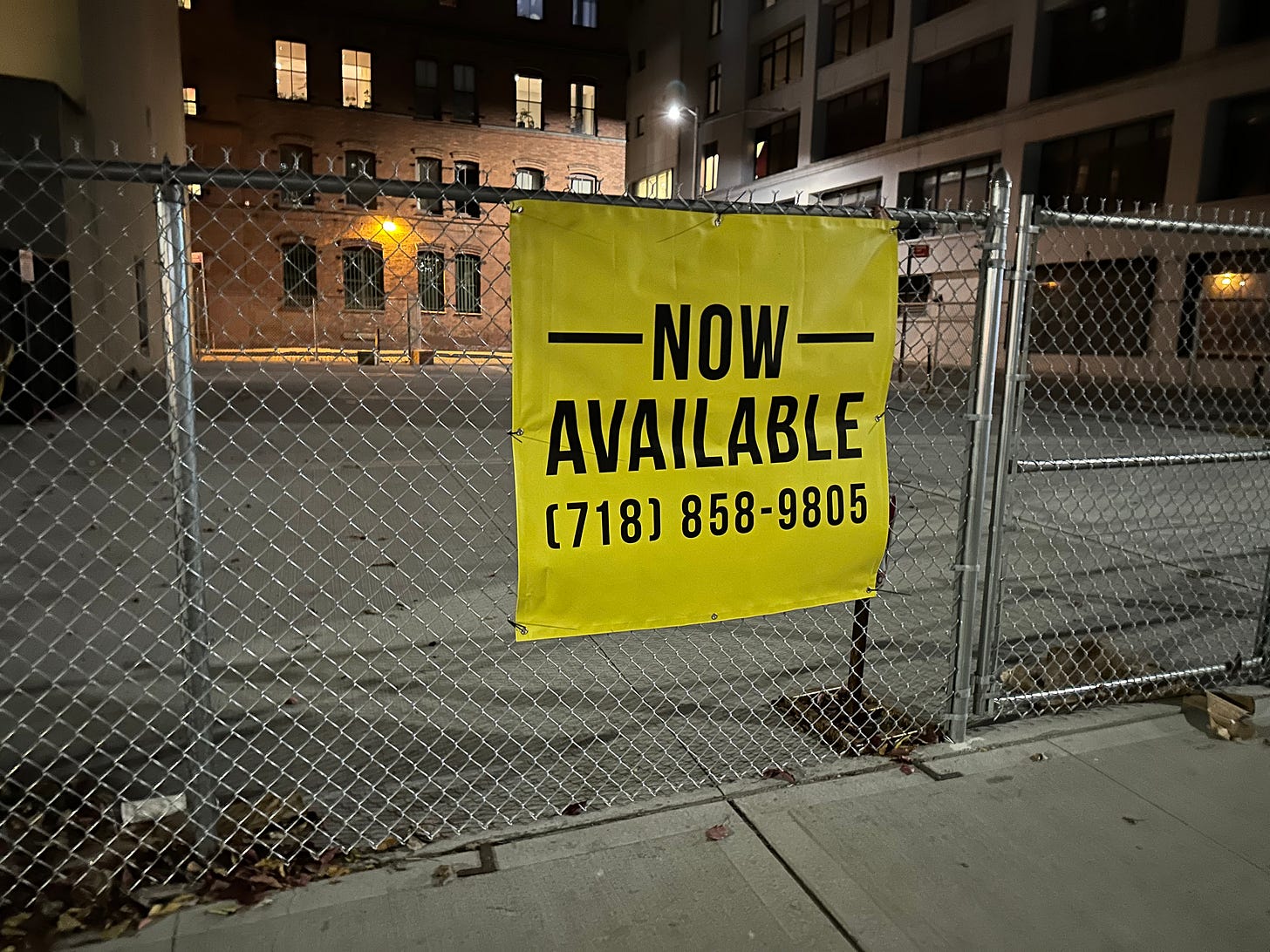Next to the Eagle Warehouse, there is a precious plot of land. Sometime in 2022, this lot was purchased by someone who decided to use it to host a flea market. Not a ridiculous idea, prima facie; DUMBO is a bustling area, particularly over the spring and summer, with substantial foot traffic from vacationers with spending money. A stone’s throw away from Brooklyn Bridge Park, it’s conceivable that vendors would make enough revenue to make renting out space profitable. However, as the months dragged on, my parents observed surprisingly little traffic and predicted that, before too long, the space would be allocated for another purpose. They were right:
I took the above photo today. Perhaps the space will be bought by a parking company, perhaps it will be bought by a developer (depending on whatever byzantine zoning regulations govern the use of this space). Clearly, it will not be rented out to street vendors again anytime soon.
The reallocation of this space is a simple case in point of the allocative efficiency produced by private property and profit-and-loss accounting: The vendors did not make enough money to continue renting out the space and, consequently, the plot owner (presumably) suffered an accounting loss—property taxes exceeded rent revenue—and an economic loss: even if the landlord turned a profit, they realized that they could have made more revenue by renting out the huge space to a firm that itself generates more revenue. Without the market, prices, and private ownership of property (as with other capital), there would be no means of gathering the information required to allocate the space to its highest valued use.
The epistemic value of prices cannot be understated. It is disregarded and substituted for the whims of central planners at society’s peril.




